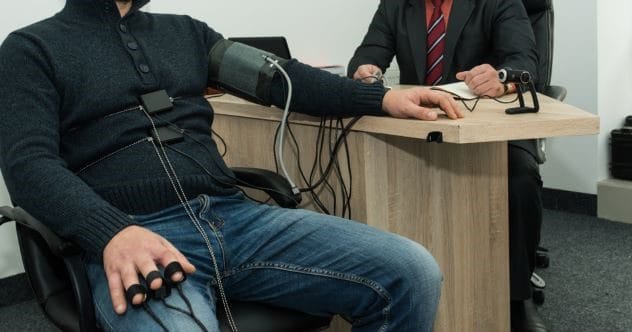Many people believe they understand the American justice system, thanks to countless TV shows and movies. However, these shows often take creative liberties, presenting an inaccurate picture. Let’s debunk ten popular myths about the American justice system.
Myth: Prisoners Are Protected and Can’t Be Used for Forced Labor
The 13th Amendment abolished slavery and forced labor, but it includes an exception for those convicted of a crime. This loophole allows prisons to use prisoners for labor, often paying them very little. While some states have banned all slavery without exceptions, reports persist of prisoners being coerced into working against their will and punished for refusing. Many advocate for amending the 13th Amendment to prevent such abuses.
Myth: Police Are Not Legally Allowed to Lie to You
A common myth is that undercover officers must reveal their identity if asked. This isn’t true. Police officers can and do lie about various things during questioning, such as claiming they have evidence they don’t, or secretly recording you. However, they cannot lie about your legal rights.
Myth: It Is More Expensive to Keep Murderers Alive Than Use the Death Penalty
The death penalty is a controversial issue but is sometimes justified as a cost-effective measure. However, the death penalty is actually more expensive than life in prison. The high costs are due to the extensive trial process required, including two separate trials: one for conviction and another to decide on the penalty. These trials consume significant prosecutorial resources.
Myth: You Have a Right to One Phone Call When Arrested
Movies often portray an arrested person’s right to a phone call, but this is largely a myth. The U.S. Constitution doesn’t guarantee a phone call upon arrest. While you have the right to legal counsel before questioning, police aren’t obligated to let you make a call until they’re ready to interview you. Some states or localities may allow calls to friends or family, but it is not a federal legal right.
Myth: Police Interrogators Can Tell if You Are Lying from Body Language
Many believe that analyzing body language can reveal if someone is lying. Law enforcement officers often pride themselves on their ability to spot deception through body language. However, studies show there are no universal signs of deception. Even police officers trained in body language perform no better than the average person at detecting lies. The U.S. Secret Service is only slightly better at detecting lies than the general population.
Myth: Criminal Courtroom Trials Are Common in the USA
Court dramas often depict intense criminal trials, leading many to believe trials are common. In reality, trials are rare due to their high cost. The state prefers to avoid the expense, and defendants often accept plea deals to avoid harsher sentences. Depending on the state, only 5 to 10% of cases go to trial. In the federal government, trial rates can be less than 3% in some years.
Myth: Crime, Especially Violent Crime, Is on the Rise in the States
Many Americans believe that crime rates are rising and that immediate action is needed. However, recent FBI data from 2023 shows a significant drop in crime rates. Violent crime decreased by 8%, and property crime fell by 6%, the largest reduction since 1961. Murder rates have also plummeted. Initiatives by the Justice Department to combat rising crime have proven effective.
Myth: The Insanity Plea Can Save You From Being Locked Up
The insanity plea is often portrayed as a way for criminals to avoid punishment by acting crazy. However, it’s rarely attempted and seldom works. Lawyers generally avoid it because a successful plea typically results in indefinite confinement in a maximum-security psychiatric facility. Insanity pleas are used in less than 1% of cases and succeed only about 25% of the time.
Myth: Police Use of Drug Sniffing Dogs to Search Your Car Is Settled Law
Many believe that police can freely use drug-sniffing dogs during traffic stops. The Supreme Court has ruled that using a dog to search a vehicle without probable cause violates the Fourth Amendment. What constitutes probable cause is evolving. Connecticut and Minnesota have banned marijuana sniffs as probable cause due to the legalization of hemp, which smells similar to marijuana. If this becomes a national precedent, it will be harder for officers to search vehicles without permission.
Myth: Lie Detector Tests Are a Great Tool for Law Enforcement
Lie detector tests, or polygraphs, are often seen as reliable tools for detecting lies. However, polygraph results are not admissible in U.S. courts. While some states allow them with mutual agreement, many consider them too unreliable. The American Psychological Association concludes that polygraphs are only slightly better than random chance and have too many errors for use in criminal law.
These myths can distort public understanding of the criminal justice system. Knowing the facts is crucial for informed discussions and policy-making.
Did any of these myths surprise you? Share your thoughts in the comments below!










